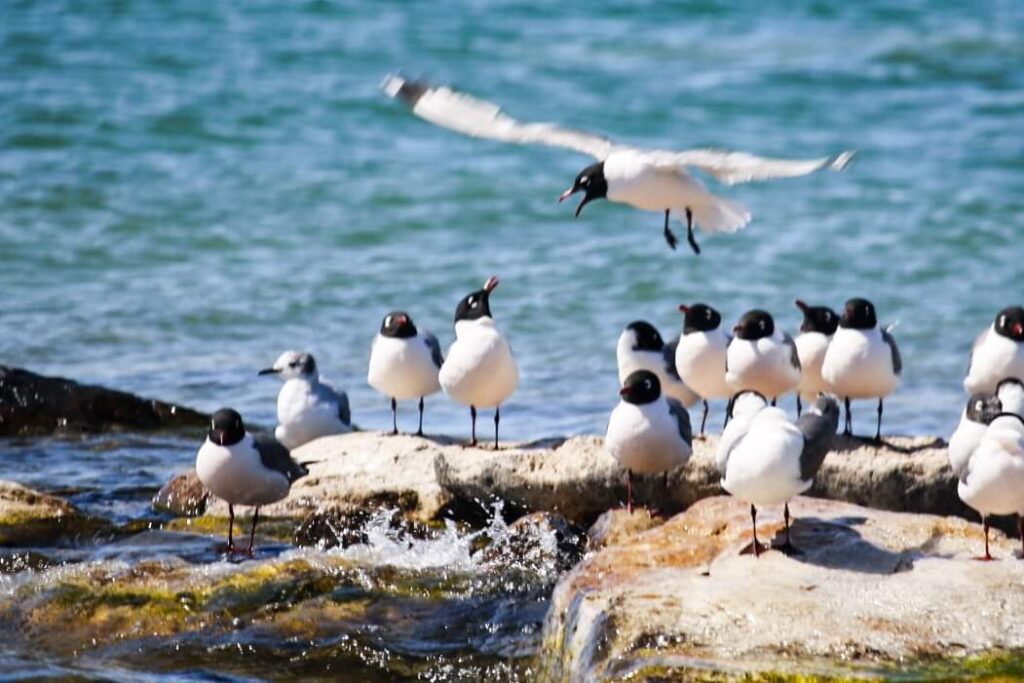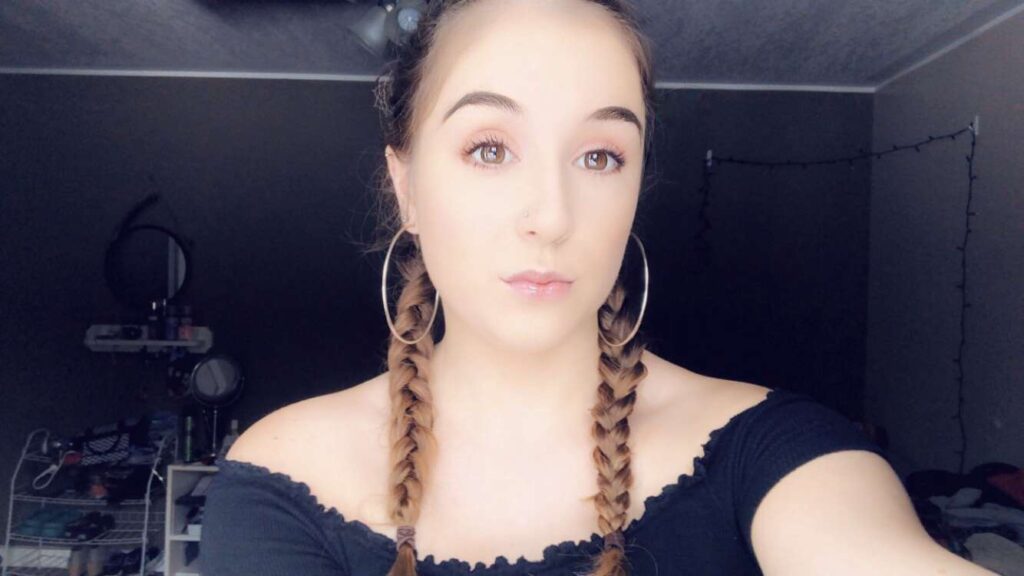Article 8 – Ohana

by Taryn McKinney
One of the most inspiring quotes from the movie Lilo & Stitch is, “Ohana means family, and family means nobody gets left behind.” I used to believe this statement when I was little. I lived by that quote, and I truly believed family was everything. But is it? How long before one needs to draw the demarcating line with someone who continues to defy good counsel, who refuses to take responsibility for his/her actions. My family home was never a home, it was hell.
Imagine being only 14 years old and working from 4pm to 11pm everyday because one needed to support oneself entirely. You unlock the dirty, unpolished gold doorknob on your beat up, run down, one-bedroom trailer only to find your mother passed out in her own vomit. A shade of green so neon there was no question whether or not it was toxic.
My mother is a deadbeat drug addict, and her condition went down hill right after my father left home. I was ten when he left. Things were slow at first, lots of fighting, yelling, crying, and of course, my mother falling even more off the handle.
“I thought you loved me,” my mom screamed at my dad the night he walked out on us. Her voice was raw, but she still had volume in her screech that most would have mistaken for a banshee’s cry.
“I did, Marissa, but I can’t do this anymore. You refuse to get help or to even admit you have a problem. I’ll be back for the kids and the rest of my stuff in a week, after I get settled in my new place. Please, don’t make this harder than it needs to be.”
I heard the door lock click into place on our modern Victorian-style bungalow. There was a brief pause before the door opened again: “For the kids, Marissa.” He shut the door for the second time as he turned to walk into that fall night.
My brother and I had been curled up together in my closet, which was our favourite hiding spot. When I heard the door close, I took off running, pushing my feet as fast as I could, out from underneath me. I shoved my no-good mother out of the way as she tried toblock me from accessing the door.
“Please!” I screamed at the top of my lungs, my voice even cracking at the end because of how loudly I was pleading. My dad turned around and for the first time in ten years I saw him cry, but he was trying his best to be strong. He knelt down to look at me in the eyes: “Please, don’t leave us with her. Take us with you, I don’t want to stay with her.” I sobbed into his arms.
He pulled me in closer and gave me one of the tightest hugs I’ve ever received. “I’ll be back in a week, I promise,” my dad whispered.
“Promise?” I asked, tears spilling from my eyes uncontrollably.
“Promise,” he said, pulling away and kissing the top of my head.
That was the last night I saw my dad. Three days after her left, my mom packed up everything we could gather into her broken down, grey, Honda Civic, and we left town. Four and a half years later, and I still hadn’t heard from him. I always told myself that it was because he didn’t know where we were, but I wouldn’t lie, I was losing hope. Regardless of how long it took, I knew one day we’d be reunited with him; it was the only thing that kept me going. My father was the light of the imaginary life I longed for.
“Mom?” I said, as I nudged her pale, skinny body with my foot. I watched as her chest rose and fell, but she didn’t move.
I stepped around her limp figure and into my bedroom, which also served as our living room. My brother was curled up in the corner, rocking back and forth. The small box TV was on, flickering as it played cartoons. There was a new bruise on the side of my brother’s face; I knew she had hit him.
“Preston!” I gasped and ran over to him. I dropped my work bag and backpack as I scooped him into my arms. “What’s wrong? Why aren’t you in bed yet? There’s school tomorrow buddy.” I was using my most soothing voice, one that only Preston heard. He was shaking as if it was negative 30 degrees in the house.
“Mom hasn’t moved since shortly after you left at 4, after she hit me.” He was blunt. He choked on his words while getting out this piece of information, but I will never forget how I felt. I was calm, so calm as I kissed his soft head and rose to my feet. I grabbed a mirror from my purse off the shabby black TV stand that I got from a dumpster. I carefully made my way over to where our mother was lying, apparently nonresponsive. I stuck the mirror under her nose and waited, holding my breath.
Nothing. There was no fog on the mirror. I checked for a pulse, and still, nothing. Her skin was cold, like ice, and slightly grey due to the lack of oxygen. She was so skinny and so fragile. But that was only her appearance. Internally, she was a toxic, dark monster who would hit her 9-year-old son because he wanted to watch cartoons.
I didn’t cry. I ushered Preston into my mom’s bedroom and calmed him down as best as I could. She was stone cold when I called the authorities. I was silent and cool when they knocked on the door and rushed to her body. Child and family services arrived within minutes of the paramedics. She was an older lady with short, curly brown hair and a crooked noise. She spoke to me as if I didn’t know what was going on, as if I liked my mother.
“When will we see our father?” I asked after she closed her file. She wouldn’t meet my gaze. “When will we see our father?” I pressed. He could find us now, we could be a family again.
“Sweetheart,” she said in her soft, nasally tone, “It’s late, and I have to call your daddy tomorrow, okay? For tonight,” she continued on, giving us the same rehearsed speech she gave to all the other unfortunate kids. I began ignoring her and followed her to the shiny red Toyota in which she arrived.
That night, we stayed at someone’s house; her name was Suzy. She was a plump red head with kind eyes and a warm heart. She also had a lot of cats. The beds were soft, but I couldn’t sleep. My head and stomach were tossing and turning, worrying about work and my dad and where we were going. My brother slept peacefully beside me, and I pulled him closer. For the first time in forever, a tear rolled down my cheek.
There was a soft knock on the door. My eyes shot open and my heart raced wildly, thumping against my rib cage. I pulled my brother tight to me, unsure of who or what was behind the white door. The door cracked open and I could see a tall figure in a dark jacket. The door swung wide open, revealing…
“Dad!” I cried. Tears rained down my eyes, one salty drip after the other. I scrambled out of bed. My brother and I raced across the room and threw ourselves into his arms. He dropped to his knees, spreading out his arms for a hug.
We hugged for what felt like forever, and all of us cried. It was one of those hugs that you just didn’t want to end. It was filled with love. It was one of the best days of my life; everything I could have ever imagined. Finally, my family was whole again. My brother and I moved in with my father and his girlfriend. Her name was Stacy and she was very, very nice. My dad told us that our mother had been hiding us for four years and he never stopped looking, not once. Stitch was right after all, “Ohana means family, and family means no one gets left behind.” Family really is everything.
About the author: Taryn McKinney is a first year BEDIS student at UCN.
In her spare time when she’s not working, she enjoys spending time with friends, reading, and writing.

Instructor’s Remark: Taryn is a gifted writer. In Ohana she reflects on the challenges of drug addiction and its attendant consequences, chief among which is a breakdown of the family unit. Children are often on the receiving end of such experience. Taryn continues to write. Her short story in the ENG.1002 course Not Your Average Fairy Tale will make a great read in the near future. Watch this page (Joseph Atoyebi PhD).
